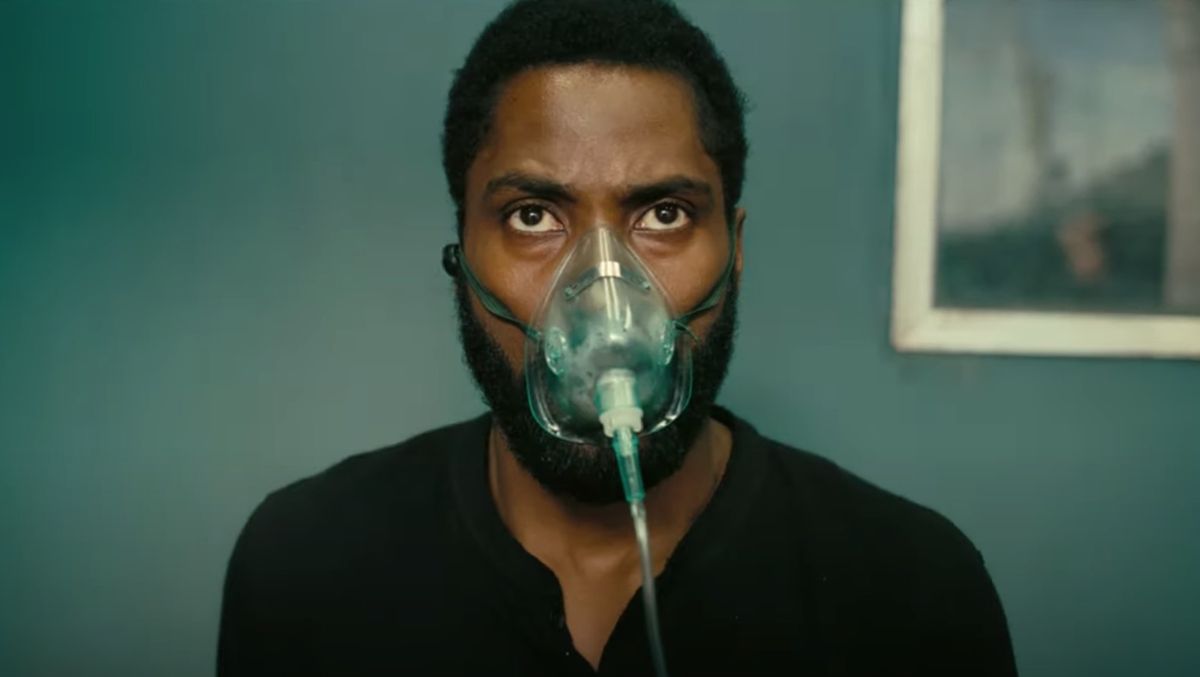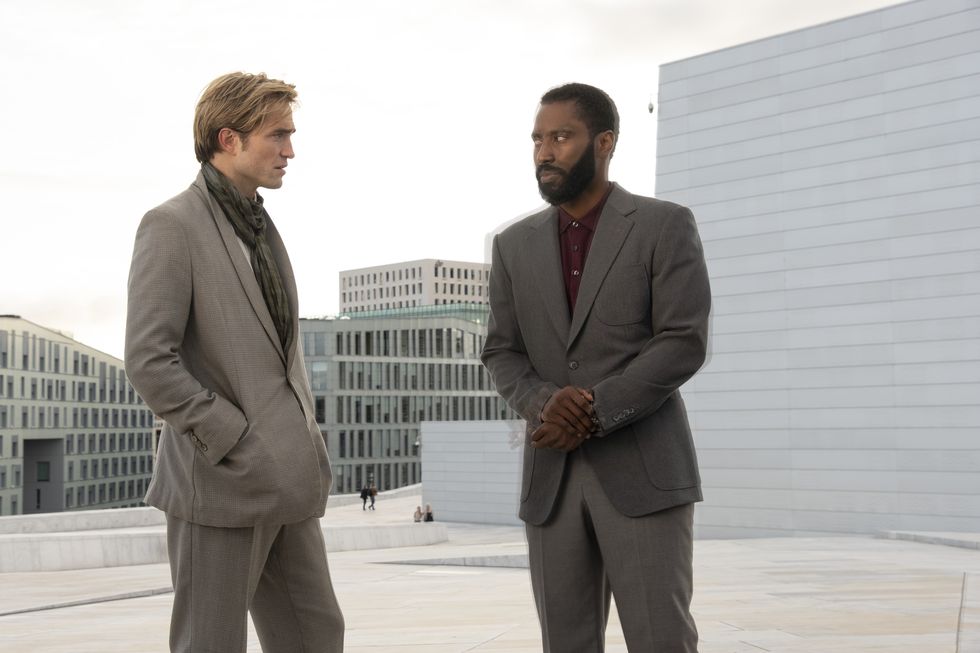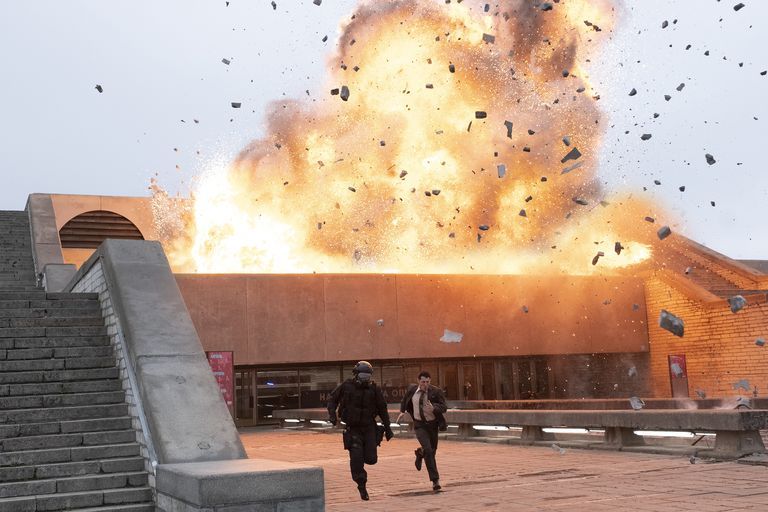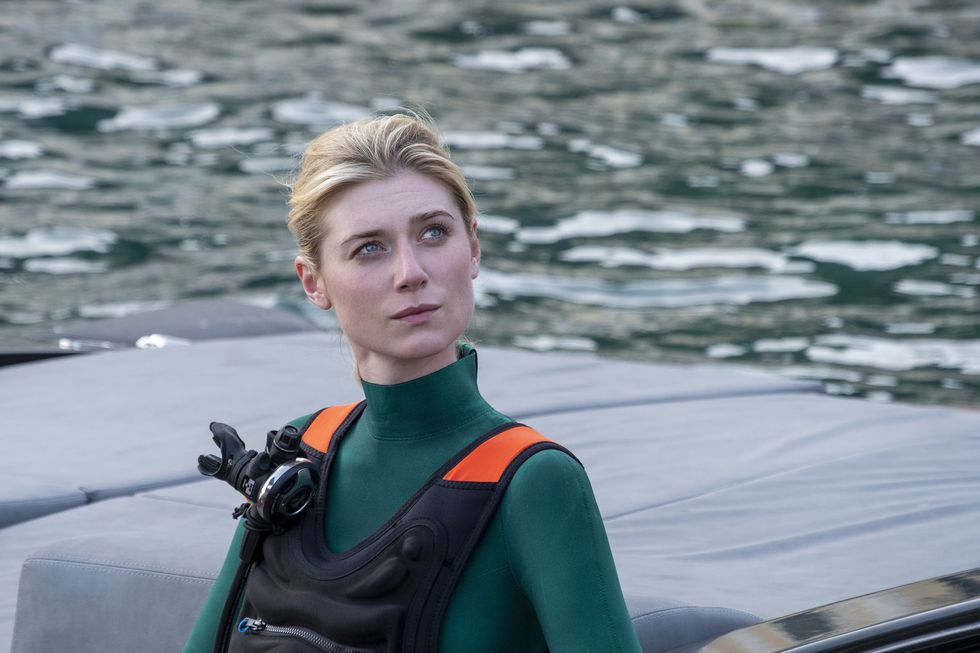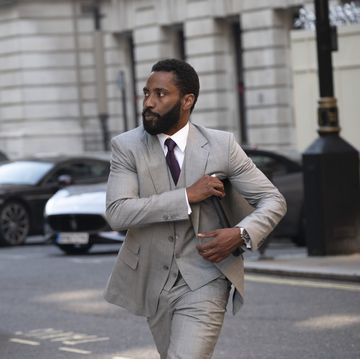This article contains major spoilers for Tenet
At the climax of Tenet, two groups of soldiers who are, in fact, one group of soldiers travelling through two separate timelines in a temporal pincer movement (*breathe*) attack an enemy from the future in order to rescue a world-ending algorithm. It is...confusing. Tough to follow. But at one point a building explodes twice, once in reverse, which is a lot of fun, no matter which way your entropy's flowing.
In order to travel into the past, people from the future have to be inverted, so they travel against the way that time naturally moves. The Tenet ending reveals that the all-important algorithm is a machine that has the ability to reverse the arrow of time. If the algorithm does its job, time will start to flow backwards. As such, the past will be erased. The Tenet algorithm was created by an unspecified future scientist – the same one who invented time inversion – who, in an Oppenheimer moment, realises that they have become death, the destroyer of worlds. To stop the algorithm from being used to destroy the past and everyone in it (ie, everyone, everywhere, ever), the scientist splits it into nine separate parts, scatters them around space and time, then tops themselves so no one can torture the info out of them. Job done.
Although, job not so done. The people from the past really want to put the algorithm together again, because we past people have, seemingly, torched the planet with our single-use plastics and Ryanair flights to Malaga. We in the past have massively foreshortened the future, so the people in the future feel like they can retaliate by wiping away the past. This plot point, though criminally undercooked, is the only part of Tenet that feels close to real life. Which is sad.
Our heroes (or are they heroes? Can there be heroes in a world in which the past and future have already happened?) manage to nab the algorithm just in the nick of time, thus averting attempts by Sator (Kenneth Branagh) to stick reality into reverse gear. Aaron Taylor-Johnson's beefy military man then unscrews it and tosses a piece to Neil (Robert Pattinson) and the Protagonist (John David Washington), ordering them both to hide it somewhere no one will ever find it. That means no paper trail, since any form of communication can be read, eventually, by the people in the future, who will always be hunting the algorithm (do we smell a Tenet sequel?).
In the film, this sinister algorithm is largely a McGuffin, something for our heroes to pursue but which is really just a way to keep the plot moving forward. However, in 2020, it feels particularly apt that Tenet's baddie isn't just a scenery-chewing oligarch, but also a mathematical formula that no one really understands, even if it does give us the heebie-jeebies.
Which is odd, in a way, because algorithms are, by their very nature, neutral. They’re just pieces of code, ways to parse and process data. They’re villainous in the same way that the word 'but' is villainous – only if someone chooses to use it in a sentence like: "We have a Covid-19 vaccine, but I'm not going to give it to you." It's the intent, not the thing itself.
Algorithms are, in the main, used for things we all think of as 'good'. They keep traffic flowing and planes in the air. They help doctors see patients and make 'WAP' play on your phone. Algorithms got us to the moon. They're a bit like the circulatory system that keeps information pumping around our modern world. When they work as they should, we don't notice them.
Occasionally, though, they cause a massive cultural heart attack. Right now, when you think ‘algorithm’, you don’t think about a string of symbols that controls traffic lights. You think of YouTube boosting far-right videos; of Russian troll farms inciting racial hatred; of Cambridge Analytica. Just this week, Boris Johnson blamed a “mutant algorithm” for the exam results debacle, as if it weren’t the product of human brains and government ministers.
An algorithm is not Skynet (although SKYNET is an algorithm, specifically one used by the NSA to track people based on their mobile phone use and, when it does that job badly, send drone strikes after innocent Pakistanis). An algorithm cannot make decisions, it can only make calculations based on the set of rules that someone – a human – has defined. As such, it is the product of its creators' prejudices. An algorithm that downgrades the exam results of poor kids is elitist because the people who wrote it decided that wealth is a shorthand for academic success. But because algorithms are complex and, often, function invisibly, it is easy for those who use them to wash their hands of what they've built. "If your Facebook feed is full of racist bile, it’s because the algorithm is giving people what they want to see. Don’t blame us."
In Tenet, an algorithm is the perfect bad guy because it’s incomprehensible. Christopher Nolan’s version of an algorithm is a physical object, made of metal, that looks like a steampunk tent pole. Using some kind of special maths (and, I dunno, radiation?) it can reverse the flow of time. No exposition needed, just have faith. It is a source of great power that needs to be kept away from people who’d use it for evil. Basically, it’s magic.
To a mathematician, or computer programmer, that would be nonsense. To the rest of us, that’s exactly how algorithms appear to work, like invisible hands that control how we see the world. They shape our perception of reality, influence our politics, poison us against our neighbours. They are all-powerful and must be kept away from people who’d use them for nefarious ends.
In Tenet, the algorithm is torn apart and hidden, but Nolan might as well have had the Protagonist hurl his piece of preciousssss metal into a magic volcano, before hitching a ride back to London on a giant eagle. We can't do the same thing with the algorithms the govern our world. Nor can we go back in time and warn our past selves about how they'll be used. Unfortunately for us, what's happened, happened.
Like this article? Sign up to our newsletter to get more articles like this delivered straight to your inbox
Need some positivity right now? Subscribe to Esquire now for a hit of style, fitness, culture and advice from the experts
